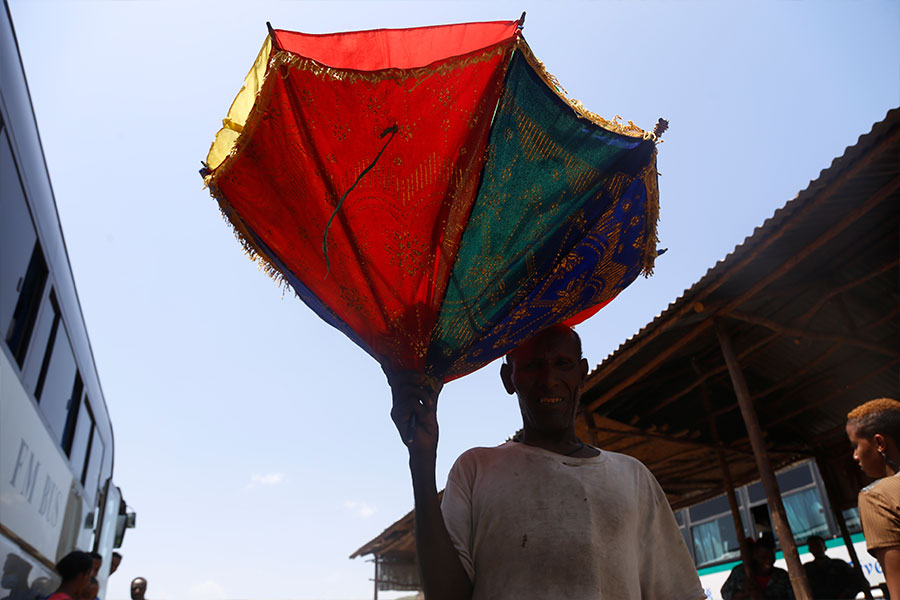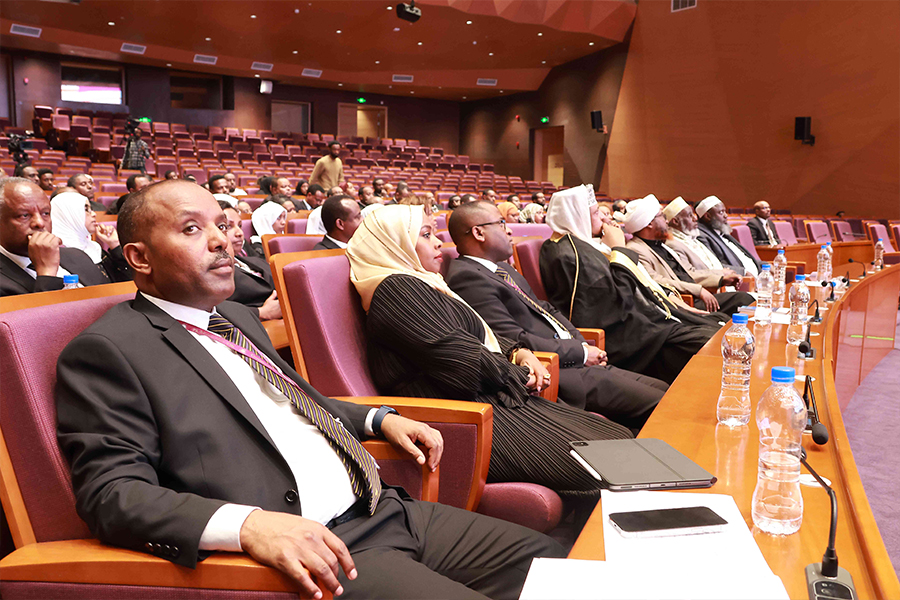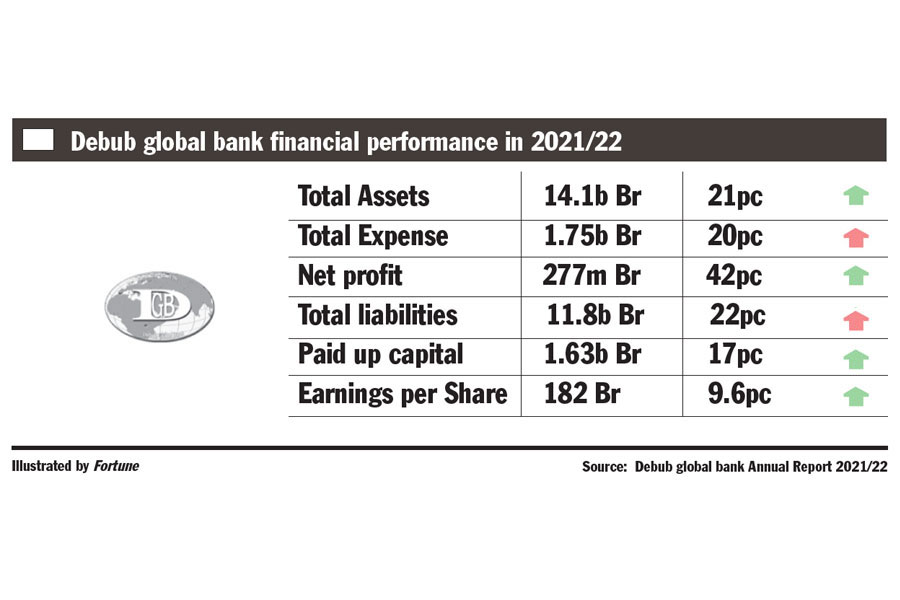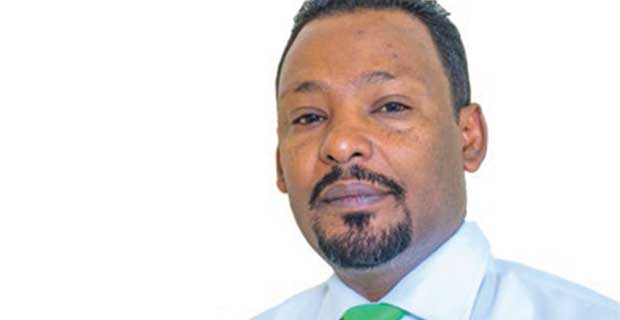
Radar | Jun 12,2021
Bunna International Bank managed to steer itself back into the realm of positive growth after making a profit that has made the turnaround.
Netting 670.6 million Br in its operations last year, a 52.3pc jump, the performance is a welcome change for Bunna's executives, who shad seen a 4.6pc decline in 2019/20, displeasing shareholders. Among these shareholders was Meseret Degefu, who was discontented with the decline in earning per share in the preceding year. Bunna's earnings per share (EPS) receded by 21.6pc to 225 Br in the previous year's operation.
To the delight of close to 16,000 shareholders, Bunna's latest performance boosted earnings per share by 68 Br to 293.2 Br. They also saw equity grow by 15.6pc to reach 2.5 billion Br by the end of June 2021.
“Last year was better than the disappointing returns shareholders had received the year before,” Meseret told Fortune.
She bought shares worth 50,000 Br eight years ago. Her investment has since doubled as she recapitalises the dividends she receives.
The tide changed due to the management’s focus on the expansion of customer base, improved service efficiency and growing branch outreach, according to Sewale Abate (PhD), board chairperson, who addressed shareholders during a meeting at the Golf Club held on December 11, 2021.
The Bank closed the financial year with 1.4 million deposit account holders after over 579,000 clients opened accounts last year. It added 46 branches during the reporting period, bringing the total branch network to 285. Total deposits reached 20.5 billion Br last year, growing 47.5pc.
The rise in deposits matched the growth in loans and advances.
Bunna disbursed 6.7 billion Br last year, bringing its outstanding loans and advances to 17.9 billion Br. This pushed the loan-to-deposit ratio to 87.7pc from 83.3pc the previous year, inching closer to the prudent ceiling of 90pc. Although the high ratio brings more in interest income, it could cause liquidity problems, according to Abdulmenan Mohammed, a financial statement analyst based in London.
"The management should constantly monitor liquidity levels,” he said.
Accounting for 79pc of the total, interest income remains the major contributor to Bunna Bank’s revenue, reaching 2.6 billion Br last year. This shows that the Bank is generating much of its income from viable and less risky sources, according to Mulugeta.
However, the Bank saw its gains from foreign exchange dealings plummet by 85.5pc to 7.61 million Br last year.
Yet, the Bank's senior executives say Bunna's asset quality improves.
“Non-performing loans (NPL) have shown an encouraging improvement last year,” said Mulugeta Alemayehu, president of Bunna Bank.
Bunna's share of sick loans has dropped to 2.9pc of its portfolio, down from 4.6pc the previous year. Regulators at the central bank have set a ceiling of five percent for the industry. Provisions to secure defaulted loans and other assets soared by 123pc to 163.37 million Br, equivalent to a quarter of Bunna Bank's profit after tax. The increase in provisions was a moderate 16pc the year before.
Mulugeta says provision for sick loans rises as the amount disbursed loans and advances increase, which grew by 57pc last year. They account for 69pc of the Bank's total assets. Investments such as central bank bills, 10.2pc of total assets, have fallen by 11pc to 2.65 billion Br. Yet, the Bank’s total assets hit 26 billion Br over the reported period, registering a 37.6pc increase.
Although cash and bank balance increased by 8.17pc to 3.28 billion Br, the Bank’s liquid asset to total assets ratio dropped by 3.4 percentage points to 12.6pc in the previous year.
“Bunna Bank should pay attention to its liquidity level,” cautions Abdulmenan.
The paid-up capital of Bunna Bank, incorporated in 2009, reached 2.5 billion Br last year, putting the Bank halfway to meeting the central bank's requirement for capital threshold.
Commercial banks must meet a capital threshold of five billion Birr by 2025. Awash and Abyssinia are the only private banks whose paid-up capital has met the requirement. Awash International Bank, the most capitalised private bank in the industry, saw its paid-up capital shoot up by a staggering 40pc last year to 8.2 billion Br. Abyssinia's 5.2 billion Br in paid-up capital follows it.
Bunna Bank incurred total operating expenses of 2.36 billion Br last year, which showed a 48pc increase from the previous year. Interest paid to depositors has surged by 65.8pc to 898.5 million Br, accounting for nearly 38pc of total expenses.
The growth in payroll and benefits is due to the hiring of additional staff and the salary scale adjustment implemented by the Bank at the beginning of last fiscal year, according to Mulugeta. Bunna hired 559 permanent staff last year, pushing its total workforce to 2,491.
PUBLISHED ON
Dec 25,2021 [ VOL
22 , NO
1130]

Radar | Jun 12,2021

Radar | Nov 04,2023

Fortune News | Jan 18,2020

Fortune News | Apr 15,2023

Commentaries | Apr 22,2022

Fortune News | Dec 11,2021

Fortune News | Aug 24,2019

Radar | Apr 30,2021

Editorial | May 27,2023

Radar | Jan 11,2020

Dec 22 , 2024 . By TIZITA SHEWAFERAW
Charged with transforming colossal state-owned enterprises into modern and competitiv...

Aug 18 , 2024 . By AKSAH ITALO
Although predictable Yonas Zerihun's job in the ride-hailing service is not immune to...

Jul 28 , 2024 . By TIZITA SHEWAFERAW
Unhabitual, perhaps too many, Samuel Gebreyohannes, 38, used to occasionally enjoy a couple of beers at breakfast. However, he recently swit...

Jul 13 , 2024 . By AKSAH ITALO
Investors who rely on tractors, trucks, and field vehicles for commuting, transporting commodities, and f...

Nov 1 , 2025
The National Bank of Ethiopia (NBE) issued a statement two weeks ago that appeared to...

Oct 25 , 2025
The regulatory machinery is on overdrive. In only two years, no fewer than 35 new pro...

Oct 18 , 2025
The political establishment, notably the ruling party and its top brass, has become p...

Oct 11 , 2025
Ladislas Farago, a roving Associated Press (AP) correspondent, arrived in Ethiopia in...